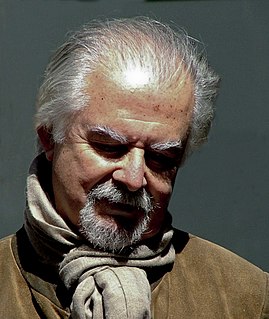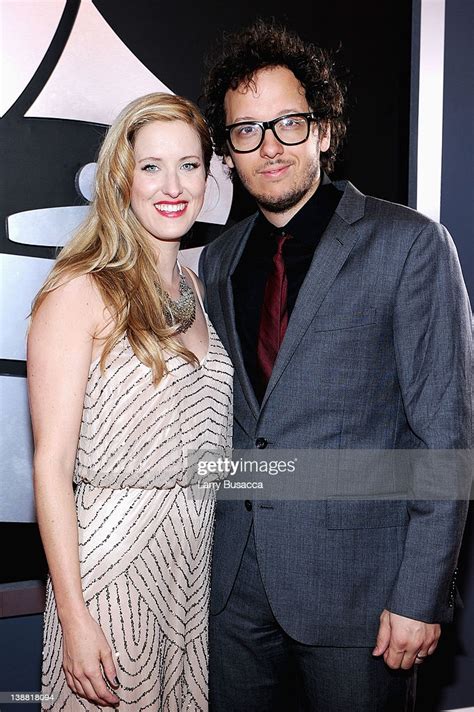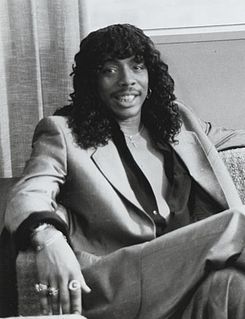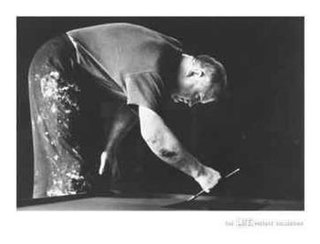A Quote by Jean Cocteau
I shall never forget what I saw at the Museum of Modern Art: in a spotless schoolroom, fifty little girls painting away at tables covered with brushes, pots, tubes, bowls, staring into space and sticking out their tongues like the clever animals that ring a bell, tongues lolling and eyes vague. Teachers supervise these young creators of abstract art and slap their wrists if what they paint represents something and dangerously inclines toward realism. The mothers - still at the Picasso stage - are not admitted.
Quote Topics
Abstract
Abstract Art
Admitted
Animals
Art
Away
Bell
Bowls
Brushes
Clever
Covered
Creators
Dangerously
Eyes
Fifty
Forget
Like
Little
Little Girl
Little Girls
Modern
Modern Art
Mothers
Museum
Never
Never Forget
Out
Paint
Painting
Picasso
Pots
Realism
Represents
Ring
Saw
Shall
Slap
Something
Space
Stage
Staring
Staring Into Space
Sticking
Sticking Out
Still
Tables
Teachers
Tongues
Toward
Tubes
Vague
Wrists
Young
Related Quotes
I have seen Colonial churches since I was very small, Colonial painting and polychrome sculpture. And that was all I saw. There was not a single modern painting in any museum, not a Picasso, not a Braque, not a Chagall. The museums had Colombian painters from the eighteenth century and, of course, I saw Pre-Columbian art. That was my exposure.
I used to flirt with fundamentalism, and I had this idea that creation was something that happened. Now I see creation as something that is happening. Hundreds of millions of stars are still being born every day. Creation is an ongoing process. The Artist has not yet cleaned out the brushes. The paint is still wet. Human beings are the small clumps of clay and breath, and we have been handed brushes of our own, like young artist apprentices. The brushes aren't ours, nor the paint or canvas, but here they are in our hands, on loan. What shall we make?
Modern abstract art starts in Russia in about 1915 with Malevich, and then the Russian Revolution happens, and eventually all that experimental art gets squashed and social realism comes back into play. All of a sudden, Malevich is no longer painting black squares; he's painting peasants in colorful schmattas.
What interests me is to paint the kind of antisensitivity that impregnates modern civilization. I think art since Cezanne has become extremely romantic and unrealistic, feeding on art. It is Utopian. It has less and less to do with the world. It looks inward - neo-Zen and all that. Pop Art looks out into the world. It doesn't look like a painting of something, it looks like the thing itself.
It took the Metropolitan Museum of Art nearly 50 years to wake up to Pablo Picasso. It didn't own one of his paintings until 1946, when Gertrude Stein bequeathed that indomitable quasi-Cubistic picture of herself - a portrait of the writer as a sumo Buddha - to the Met, principally because she disliked the Museum of Modern Art.
I had $20 million in the bank, girls are following me all over the f - place, people call my name everywhere I go. What would I change? And then one day you get onstage and you see two little girls who look like they are 11 years old sticking their tongues out and pulling their bras down and you quit touring. That's what happened to me.
Art thou in misery, brother? Then I pray Be comforted. Thy grief shall pass away. Art thou elated? Ah, be not too gay; Temper thy joy: this, too, shall pass away. Art thou in danger? Still let reason sway, And cling to hope: this, too, shall pass away. Tempted art thou? In all thine anguish lay One truth to heart: this, too, shall pass away. Do rays of loftier glory round thee play? Kinglike art thou? This, too, shall pass away! Whate'er thou art, wher'er thy footsteps stray, Heed these wise words: This, too, shall pass away.
As an artist you have to find something that deeply interests you. It's not enough to make art that is about art, to look at Matisse and Picasso and say, how can I paint like them? You have to be obsessed by something that can't come out in any other way, then the other things - the skill and technique - will follow.
The one object of fifty years of abstract art is to present art-as-art and as nothing else, to make it into the one thing it is only, separating and defining it more and more, making it purer and emptier, more absolute and more exclusive - non-objective, non-representational, non-figurative, non-imagist, non-expressionist, non-subjective. the only and one way to say what abstract art or art-as-art is, is to say what it is not.
I think, at the L.A. County Museum of Art, I saw my first example of Kerry James Marshall, who had a very sort of heroic, oversized painting of black men in a barbershop. But it was painted on the same level and with the same urgency that you would see in a grand-scale [Anthony] van Dyck or [Diego] Velazquez. The composition was classically informed; the painting technique was masterful. And it was something that really inspired me because, you know, these were images of young, black men in painting on the museum walls of one of the more sanctified and sacred institutions in Los Angeles.
For centuries poets, some poets, have tried to give a voice to the animals, and readers, some readers, have felt empathy and sorrow. If animals did have voices, and they could speak with the tongues of angels-at the very least with the tongues of angels-they would be unable to save themselves from us. What good would language do? Their mysterious otherness has not saved them, nor have their beautiful songs and coats and skins and shells and eyes.







































